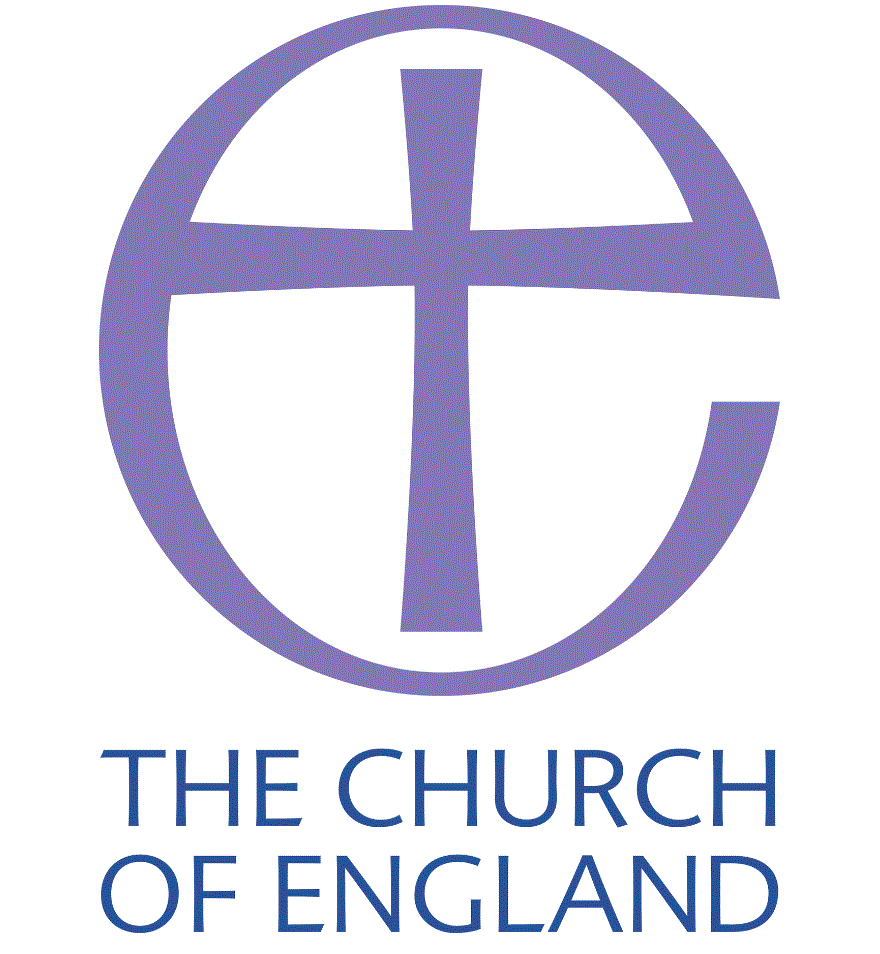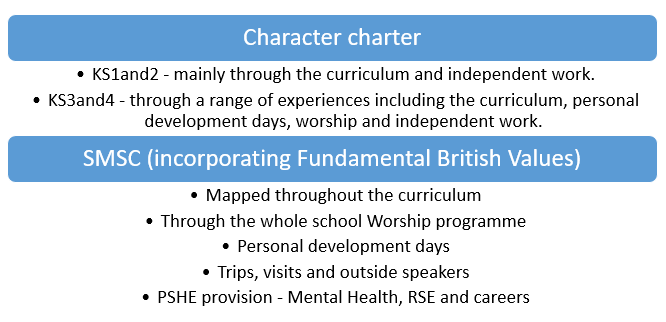Our Vision and Values
The Trinity community will live “life in all its fullness” (John 10:10)
In the Bible, John (10:10) tells us that Jesus said ‘I have come that you may have life in all its fullness’. He calls us to a full life in mind, body, heart and spirit. Therefore, we believe the purpose of education is to nurture and enable every child to flourish and to be the person they are fully capable of being. Life in all its fullness is about living a varied and full life full of learning, growing, helping, reward, joy, excitement and caring for each other. Trinity provides opportunities for growth in mind, body and spirit through inspirational and innovative education underpinned by a deeply Christian ethos.
We will do this by:
-
Establishing a unique and personalised learning journey through Trinity and beyond
-
Continuing to nurture our warm and caring family environment to support all to flourish
-
Inspiring all to achieve and celebrate ongoing and future successes.
To be a strong Christian community in which children and adults – all of whom reflect the goodness of God - can flourish. A community where pupils fulfil their potential and achieve the very best educational outcomes, enabling them to make good life choices, to uphold British values, and to take their place as citizens of the wider world.
We warmly welcome pupils and staff from all faiths and none.
As a church school we have three core values: we are a learning community, we are a loving family and we are living good lives
These values encapsulate the things that are important in our school
A learning community
The Parable of the Talents teaches us to use our God given talents and skills and to develop them, so we shine and flourish and enjoy life in all its fullness
- The Christian Story is central to who we are and what we do, and informs all of our learning
- We have high expectations of ourselves and one another in every area of school life - we aspire to excel and we never give up
- We are committed to the principles of restorative justice and discipline that is exercised with love; where all have the opportunity to learn through their mistakes
A loving family
The Parable of the Lost Sheep teaches us to be inclusive of all. We want each Trinitarian to be safe, happy and loved in our Trinity family.
- We belong to a loving family which includes pupils, staff, parents and governors - of all faiths and none; which extends to our local churches and our community
- We recognise and celebrate our diversity and equal worth, and seek to be inclusive of all, as members of one body, all made in the image of God.
Living good lives
The Parable of The Good Samaritan teaches us to be courageous advocates and agents of change. We want all Trinitarians to stand up for what is right and just to make a positive difference to the lives of others.
- As Jesus commanded us to love our neighbour, we seek to serve those in need within our own community, and in the wider community
- We are committed to pursuing social justice - especially for those who are disadvantaged - preventing discrimination and improving outcomes for all pupils
- We are all encouraged to exercise leadership, and to take responsibility for ourselves and one another.
We are The Church of ENgland and the Southwark Diocese
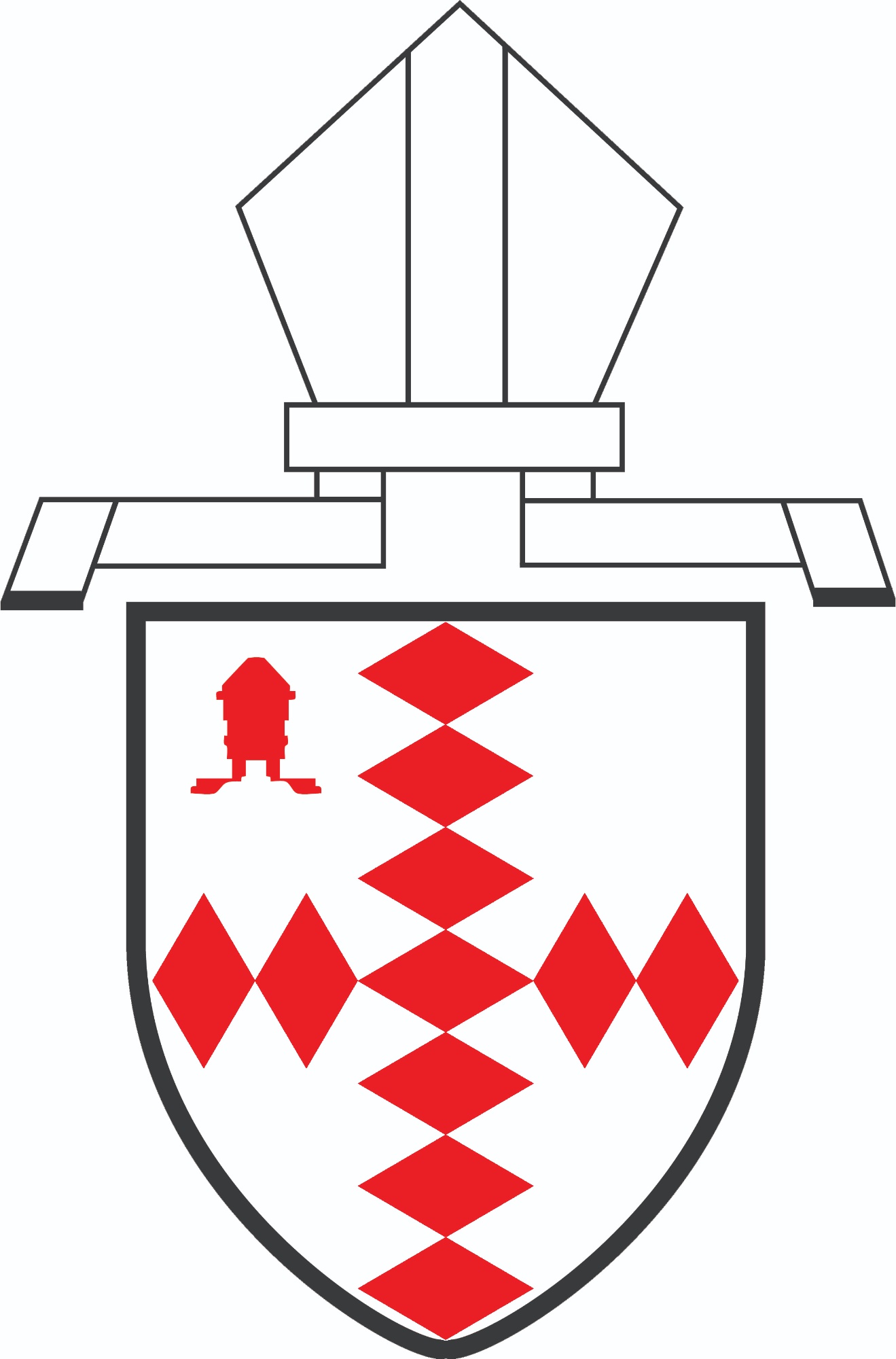
We are part of the Southwark Diocese and work closely with the team to enable us to support each other as a Church of England Family of schools.
Vision for education
Our vision for education is deeply Christian, with Jesus' promise of 'life in all its fullness' at its heart.
In line with the Church of England's role as the established Church, our vision is for the common good of the whole community.
Educating for wisdom, knowledge and skills: enabling discipline, confidence and delight in seeking wisdom and knowledge, and developing talents in all areas of life.
Educating for hope and aspiration: enabling healing, repair and renewal, coping wisely when things go wrong, opening horizons and guiding people into ways of fulfilling them.
Educating for community and living well together: a core focus on relationships, participation in communities and the qualities of character that enable people to flourish together.
Educating for dignity and respect: the basic principle of respect for the value and preciousness of each person, treating each person as a unique individual of inherent worth.
Our Spirituality
Spirituality can be very difficult to put into words. When reflecting on what it means, spirituality differs from person to person, and often changes within people during their lifetime. It is important to note that spirituality is not the same as having a religion or faith; a person can be spiritual without having a particular faith.
In our faith working party, alongside other key stakeholders such as governors, teachers and pupils we have defined spirituality as:
“Spirituality is not something we can see; it is something we feel inside ourselves. It is about belief in something beyond yourself; emotional response of awe and wonder; a sense of belonging and purpose in the world.”
Our Distinctive Characteristics

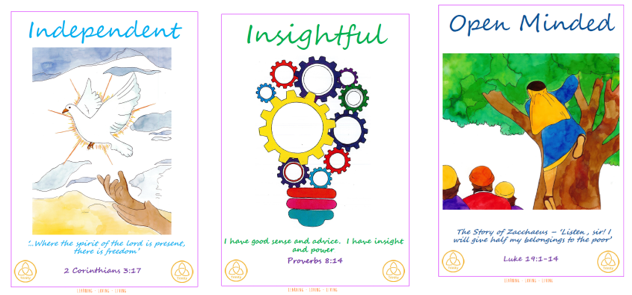
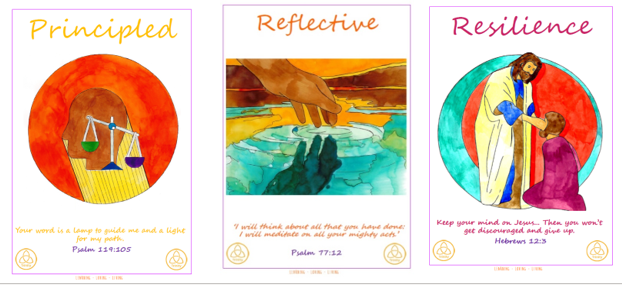
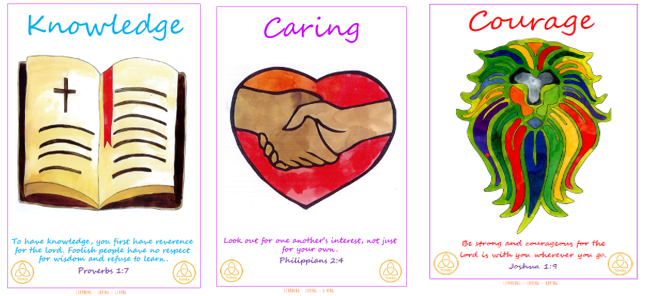
Character Curriculum
Through a bespoke character curriculum pupils will be guided through a wide and rich set of experiences which go above and beyond the normal school offer. This includes:
- Personal Development drop-down lessons each half-term focus on wider issues such as human rights, the environment, courageous advocacy, relationships, holocaust, active by-stander and greater depth topics from various subject areas such as art and diversity and Iceland people and land.
- Weekly character lessons delivered during family group time in the secondary focus on developing pupils' wider understanding of the world. In year 7 pupils work towards achieving the Character Charter Award rasing their cultural capitol, In year 8 pupils work on the social action project "1st Give" rasing funds and awareness for local charities. In KS4 pupils work on extended projects looking at world and home issues on topics of social, political, environmental and financial matters. In year 10 pupils also complete an extended project on work readiness in preparation for their work experience.
- Pupils’ talents and interests will be fostered and encouraged through a range of opportunities both inside and outside the curriculum EG trips and visits, courageous advocacy and social justice projects.
- In Primary, we have our Charter Booklets which support pupils developing a love of learning. These booklets specify experiences pupils must/should/could have at Trinity including school trips; activities or hobbies children participate in.
- Pupils have whole school educational experiences and learning-specific experiences in primary
- Outside of 'normal' school times optional experiences are offered including Year 6 school journey; Year 4 sleepover and West End Theatre trips
- All pupils, including those from disadvantaged backgrounds, are involved in activities and projects that develop their understanding of future careers and the expectations of citizens of modern Britain.
- The Trinity Offer is coordinated centrally, and all stakeholders understand how personal and character development form an integral part of school life EG through Whole School Worship/Family group time.
- Activities in school focus on the individual and the child centred approach to pastoral care is highly effective in nurturing pupils’ SMSC.
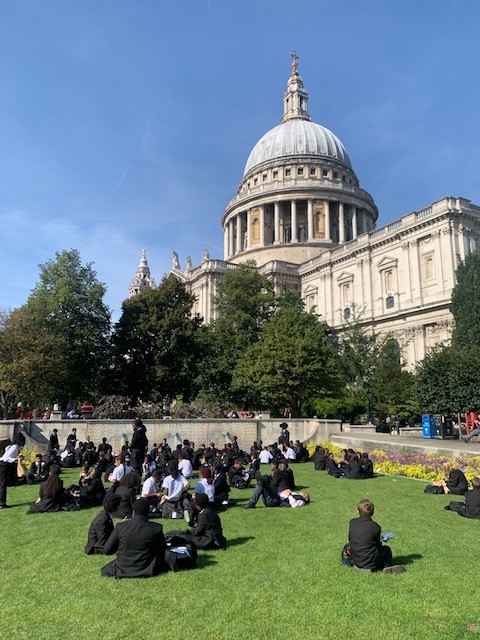
Curriculum Design: Trinity Theological Underpinning

